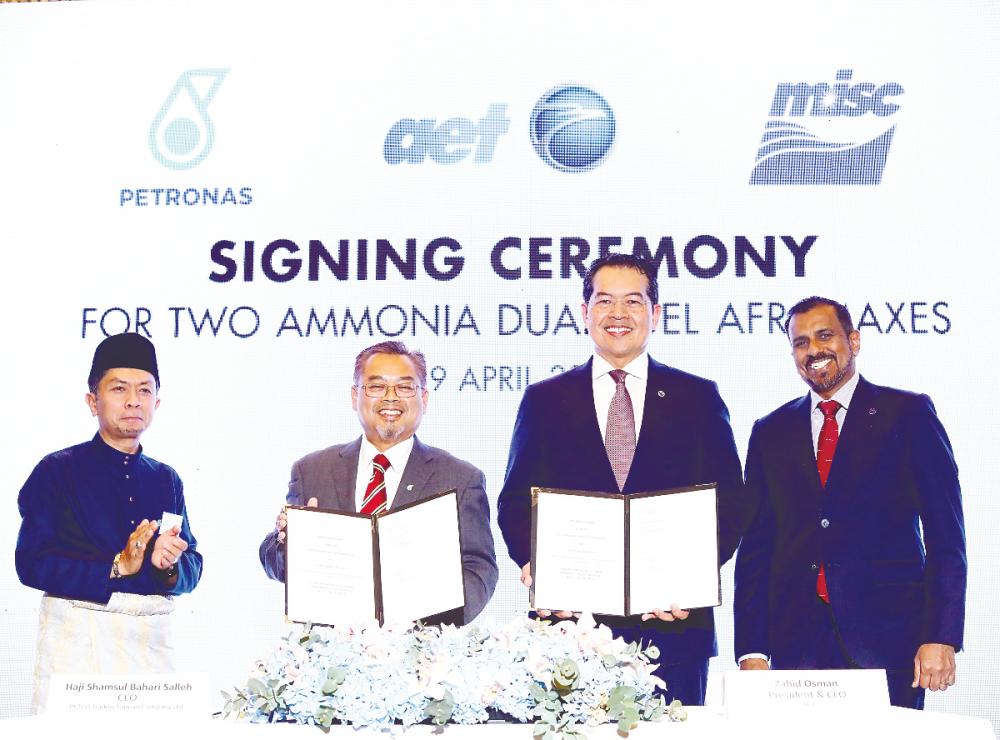PETALING JAYA: MISC Bhd has entered into Time Charter Party Contracts (TCP) with Petco Trading Labuan Co Ltd (PTLCL) via its petroleum arm, AET, for the world’s first two ammonia dual-fuel Aframaxes.
Through these vessels, PTLCL will be able to transport its products to customers around the world while contributing to the industry decarbonisation by utilising ammonia as the cleaner alternative to conventional fuel.
AET also signed the shipbuilding contracts (SBC) for these two vessels with Dalian Shipbuilding Industry Co Ltd (DSIC), a subsidiary of China State Shipbuilding Corp (CSSC).
The TCP was signed by AET president and CEO Zahid Osman, and PTLCL CEO Shamsul Bahari Salleh, witnessed by MISC president and group CEO Captain Rajalingam Subramaniam and PTLCL chairman Ahmad Adly Alias.
The signing of these contracts represents a significant step forward in the partners’ efforts to make ammonia a viable fuel for the maritime industry.
Rajalingam said these partnerships seamlessly align with their collective vision of driving meaningful and purposeful change globally as they progress towards a net-zero future.
“With the signing of these contracts, we’re not only advancing sustainable practices but accelerating our journey towards the MISC Group’s 2030 aspirations,” he added.
Zahid said that with the signings of the SBC with DSIC and the TCP with PTLCL for the world’s first two ammonia dual-fuel Aframaxes, they take concrete actions to deliver on their commitment as industry leaders to progress the decarbonisation of the shipping sector.
“The introduction of these two vessels will reduce the overall emissions from our operations whilst we deliver more energy for the world. I would like to thank PTLCL and DSIC for their forward thinking and collaboration to spearheading this new generation of ultra-low emissions tankers to support the decarbonisation of the maritime industry,” he added.
The groundbreaking achievement represents a significant leap forward in sustainable shipping practices, showcasing MISC Group’s commitment to innovation and environmental responsibility. MISC will further collaborate with like-minded industry players to drive the development of the required ecosystem to support ammonia as a bunker fuel.
MISC said it looks forward to leading the charge in sustainable maritime transport and continuing to push the boundaries of what is possible in the industry.









